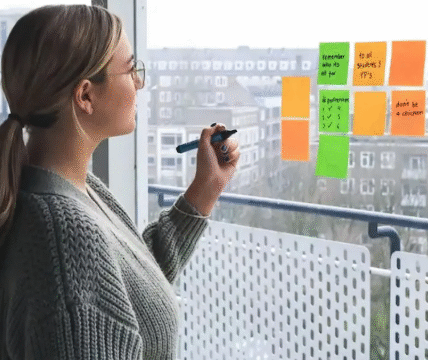Self-paced learning has become a cornerstone of modern education.
With the flexibility to study anytime and anywhere, it empowers learners to pursue knowledge at their own rhythm.
However, this flexibility also comes with its own set of challenges—particularly when it comes to staying accountable and maintaining consistent progress.
Without the structure of traditional classroom environments, learners may find themselves struggling to stay motivated or meet their learning goals. This article explores practical, effective strategies to help individuals remain accountable while navigating self-paced courses. Understanding the Accountability Challenge Accountability is the commitment to follow through on personal goals and responsibilities. In a traditional classroom setting, students are held accountable by schedules, instructors, and peer interactions. In self-paced learning, this external structure is largely absent, placing full responsibility on the learner. The absence of deadlines and oversight can lead to procrastination, loss of motivation, and eventually, course abandonment. Recognizing these risks is the first step toward building a system of personal accountability. Set Clear and Specific Goals The foundation of accountability in self-paced learning is goal setting. Start by defining your learning objectives. Instead of vague goals like “learn graphic design,” aim for specific targets such as “complete the beginner module of graphic design within two weeks.” Break your main goal into smaller, manageable tasks. These bite-sized objectives provide clear direction and a sense of accomplishment as you complete each one. Consider using a planner or digital tools to organize and track these goals. Establish a Consistent Learning Routine One of the most effective ways to stay accountable is to build learning into your daily or weekly routine. Designate specific times for study sessions, and treat these blocks of time with the same respect as scheduled meetings or appointments. Consistency is key. Regular engagement, even in small increments, helps reinforce learning habits and keeps the momentum going. Whether it’s 30 minutes each morning or a few hours over the weekend, a set routine can significantly improve course completion rates. Utilize Progress Tracking Tools Monitoring your progress is essential for self-motivation and accountability. Many online learning platforms offer built-in tracking features. These tools can provide insights into how much of the course you’ve completed, upcoming tasks, and areas where you might be falling behind. In addition to platform tools, consider maintaining a personal learning journal. Reflect on what you’ve learned, challenges faced, and strategies for improvement. This not only reinforces learning but also helps you stay focused on your end goals. Create an Accountability System Even in self-paced environments, you don’t have to go it alone. Share your learning goals with a friend, mentor, or family member who can check in on your progress. Better yet, find a learning partner enrolled in the same or a similar course. Regular check-ins, discussions, and shared milestones can greatly enhance motivation. Online forums, social media groups, or dedicated accountability apps are also excellent resources for connecting with others who share your learning journey. Minimize Distractions and Maximize Focus Self-paced learning often happens at home or in informal settings, which can be rife with distractions. Identify your primary distractions—whether it’s social media, household chores, or background noise—and implement strategies to reduce them. Create a dedicated learning space that is quiet and free from interruptions. Use focus-enhancing techniques such as the Pomodoro Technique, which involves studying in short, concentrated bursts followed by short breaks. Celebrate Milestones and Reflect on Progress Positive reinforcement plays a vital role in maintaining accountability. Acknowledge and celebrate your achievements, no matter how small. Completing a module, submitting a project, or maintaining a study streak are all accomplishments worth recognizing. Reflection is equally important. Regularly assess what strategies are working, what needs adjustment, and how you can improve. This mindful approach keeps you engaged and committed to your learning path. Conclusion Self-paced courses offer unparalleled freedom and opportunity, but they also demand a high level of personal accountability. By setting clear goals, establishing routines, tracking progress, engaging with support systems, minimizing distractions, and celebrating achievements, learners can successfully navigate the challenges of self-paced learning. With intention and consistency, staying accountable in a self-paced course becomes not just possible, but empowering. The key is to take ownership of your learning journey and approach it with a plan, discipline, and a positive mindset.






